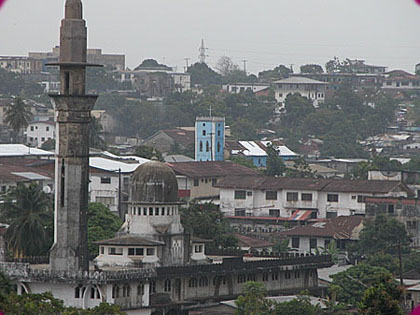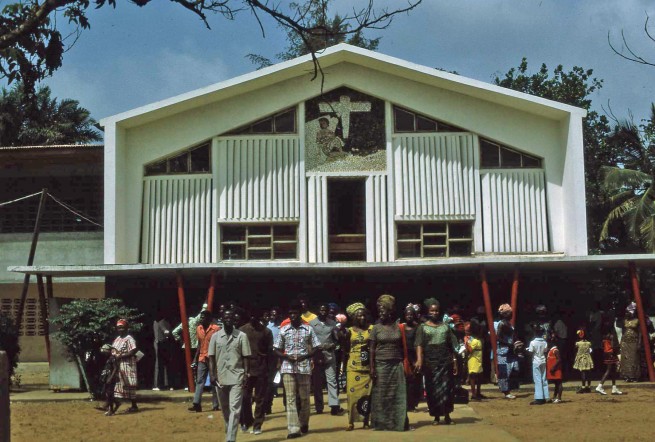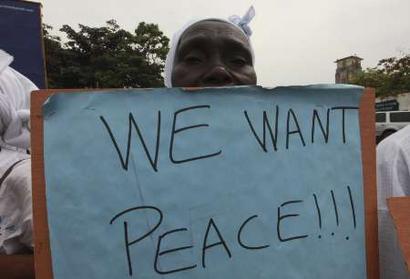WIPSEN
Women Peace and Security Network-Africa
Her parents were middle-class citizens, and she had four sisters. For most of her early life, she lived in Monrovia, which is on the coast of Liberia. Until age 17, she lived with her parents and two of her sisters in Monrovia. That year, 1989, was when the First Liberian Civil War began (this lasted until 1996.)

At this point, she learned more about UNICEF and its programs.
She was inspired to become a social worker, and she trained for three months.
For months afterward, she and three of her children lived as homeless refugees throughout Ghana. Eventually, she returned to Liberia despite its chaos. Upon return, she began working in the Trauma Healing and Reconciliation Program (THRP) at the local St. Peter’s Lutheran Church.

In the spring of 1999, while Gbowee was working at the Trauma Healing project, her supervisor, Reverend Bartholomew Bioh Colley, introduced her to Sam Gbaydee Doe. Doe was the executive director of the West Africa Network for Peacebuilding (WANEP), founded in 1998 in Ghana. Inspired by his actions in Ghana, Gbowee began to read more about peacebuilding, even looking to figures such as Gandhi for guidance.

In 2001, Gbowee earned her associate of art degree.
But while on her way towards earning it, she applied her skills in trauma healing for the young boys who had been war-children of Charles Taylor’s (then the president of Liberia) army. Late that year, Gbowee was invited to a conference in Ghana, for WANEP, since they were wanting to invite women into the organization as well. At a later meeting in October 2000, Gbowee met Thelma Ekiyor of Nigeria, who endeavored to start a women’s branch of WANEP with Gbowee.

Within a year, the first meeting of the Women in Peacebuilding Network (WIPNET) in Accra, Ghana was held.
Women from all around Africa were there, and it was clear that this vision of peace might be possible for all of them. This was a new concept: focusing on women to obtain peace.

